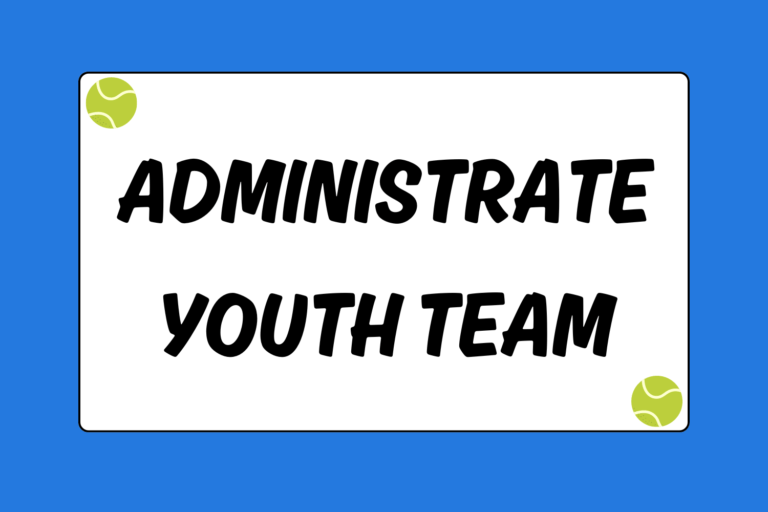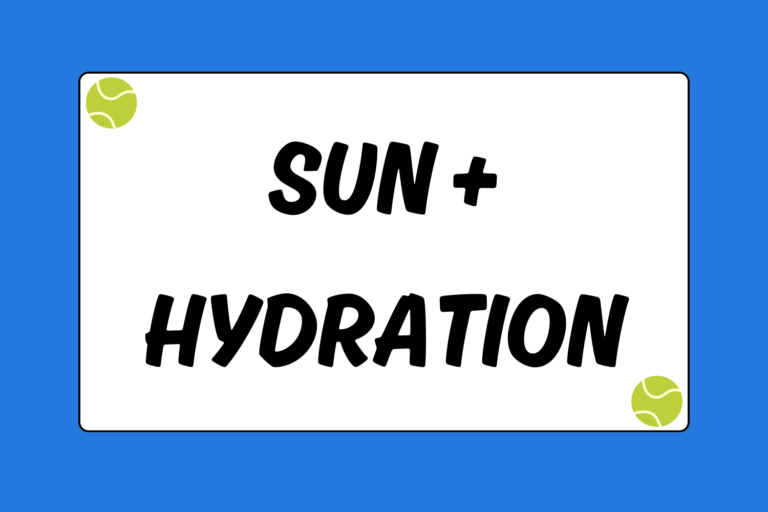Some players get queasy in the stomach simply thinking about tennis tryouts. The pressure can seem overwhelming, and many athletes break a sweat before they even change into their tennis clothes. But the worst mistake you can make is backing away from the challenge altogether. You’ve withstood backbreaking practices and grueling matches, so you should be excited to showcase your abilities. The rest of this guide breaks down how to make your high school’s varsity team.
The Tryout Process
Tryouts might seem like a completely foreign atmosphere, but don’t let the surroundings intimidate you. Team tennis is extremely fun, and tryouts are simply the first phase of a long season. The following sections explain how to thrive during tryouts.
Dream Big
Getting cold feet and not trying out for varsity as a freshman is the first blunder you can make. Even if you have a better chance of marrying into the English royal family, show up to tryouts. Show the coaching staff that you’re motivated and — more importantly — prove to yourself that you’re confident in your game. Tryouts are a chance for exposure; the coaching staff will get their first glimpse at your level of play and personal character. In addition, you’ll realize where you stand as a player and what improvements you need to make as you compete against other varsity players.
Don’t be intimidated by the challenge. Have fun with tryouts and soak up the opportunity to learn from the players around you. In the worst case scenario, you’ll make either the freshman or junior varsity team, which is still an impressive achievement. No one will fault your effort, and you might even wind up with a spot on the varsity squad.
Wins Speak Louder than Words
Not to pound you over the head with the obvious, but you need to win your matches — or at least play competitively. Nothing impresses coaches more than a big “W,” and they’d be foolish to cut a player who consistently finds ways to win. Don’t drop easy points or commit unforced errors, even if it means resorting to pushing the ball back over the net.
You might not be able to win every match, but you can still rack up some games in the process. Losing in a tiebreaker, for example, is much more impressive than dropping the set 4-0 — especially if it’s against a current varsity player. Focus on holding serve, and always exploit your opponent’s weaknesses. You won’t have too much time to find holes in his game, so pay attention during warm-ups and rallies.
Mental Edge
Every team’s tryout process varies slightly, but you’ll always play matches. There’s no better barometer for success than match results, so coaches will pit you against current varsity players and other tryout participants. In general, you’ll play a four-game pro-set without ad scoring. Shortened sets allow you to play more opponents, but they also give you less time to make a comeback, so start strong!
Overhitting Yourself Out of Tryouts
While you might be tempted to out-muscle your opponent and impress the coaches with powerful groundstrokes, don’t overswing. Sure, hitting with pace can make you stand out. But if you’re failing to keep the ball in play consistently, you’ll draw attention to yourself for the wrong reasons. Coaches aren’t looking for the hardest-hitting player; they simply want someone who can win matches.
Keep the ball over the net as much as possible and make your opponent work for each point. You might make a good impression simply because you avoid silly errors. Coaches want consistent and fundamental players who lack glaring weaknesses.
Speak Up
While you don’t want to be a complete apple-polisher, you should try to make an impression on the team. Whether you speak to the head coach before tryouts, or you talk to some of the current varsity players before a match, make your voice heard. For example, meet with the coach a few weeks before tryouts and ask what kind of player he needs, or what areas of your game need improvement. It’s possible that you’ll edge out a similarly-talented player simply because the coach and players prefer your work ethic, attitude, and character.
Partner Up
Most young players dedicate themselves to singles. They go to tryouts with the expectation that they’ll one day be the top singles player for their high school. There’s nothing wrong with this mentality, but keep in mind that doubles accounts for a major part of high school matches, as well.
Some teams might have a bigger need for doubles, so show the coach that you’re flexible and willing to play with a partner. You’ll definitely stand out if you show potential as both a doubles and singles player. Some players might look down at the prospect of playing with a partner, so you’ll automatically have an edge on your competition if you prove yourself a versatile athlete.
Center Stage
Ultimately, you’re going to be judged on your ability to compete. If you’ve put in the necessary practice time, competed in tournaments, and worked with a coach, tryouts shouldn’t worry or surprise you. Be yourself, and don’t try to put on a show. You can’t end the point in one shot every time, so play at a comfortable pace and hit aggressively when the opportunity arises. Enjoy the entire trying-out process, and don’t let your nerves get the best of you.





